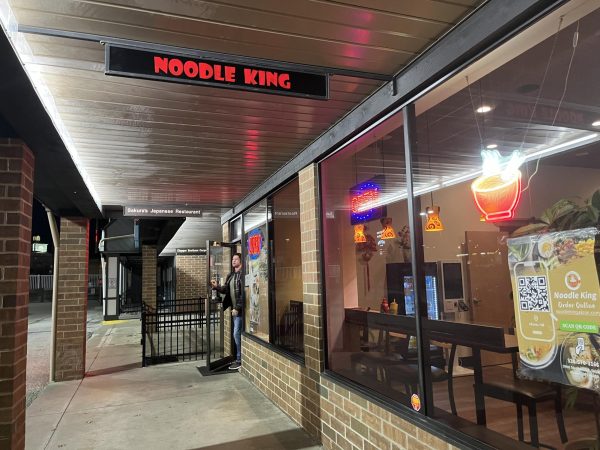Senioritis strikes, renders students incapable of effort

May 22 – a date reverently etched into the calendars and minds of my senior class. This date is the tangible representation of our impending freedom: our graduation day. To reach it, we must endure the dwindling remainder of our high school careers and all that they entail; 41 more days filled with homework, late-night study sessions and preparatory paperwork galore. Only time will succeed in vanquishing our assignments and responsibilities, assuming we make the necessary effort. As the year has progressed, however, my peers and I seem to have lost all ability to do so, no matter how simple the task may be; no, neither snacks nor the remote control can be summoned from the comfort of the couch via the Force, telekinesis or any other similarly bizarre phenomenon (believe me, I have tried). These are the facts, no matter how adamantly the class of 2016 chooses to deny them; yet deny them we do. Homework completion rates are dropping faster than the grades they are meant to support. The scholarly practice known as studying – a helpful contraction of the words “students” and “dying”– is rapidly fading into legend. The halls buzz with various defeated phrases, such as “uncle,” “can we not,” and, my personal favorite, “no.” And here I sit, trying to mentally justify what would be my fourth hour-long work break in four hours. (Yes, you read that correctly. It’s an off day.) So, this is senioritis.
Senioritis is defined by Merriam-Webster as “an ebbing of motivation and effort by school seniors as evidenced by tardiness, absences, and lower grades.” Though the term was first used in 1957, senioritis has since become commonplace among today’s young adults. The main reason behind this jump in the senior slump? False security.
Most students begin to receive college acceptance letters and scholarships by the time they reach their senior year.
Believing that their work is done, many seniors may drop particularly difficult classes and opt for a schedule of “filler” courses, choosing cruise-control over challenge for their final year in grade school. They may also “check out” once they reach the last semester or trimester of their final year, neglecting their grades and other college interest activities in favor of more enjoyable pastimes – working less and going out more, if you will. This practice is dangerous to future college students. Contrary to popular belief, that acceptance letter is not a binding contract; certain mistakes could land prospective students in their college’s discard or no-fund piles, even after an initial admittance or award.
Following admittance, colleges request a final transcript as a mandatory step in the enrollment process. Should a college decide that a student’s academic achievements (or lack thereof) are not of a respectable nature – displaying decreasing grades or sub-par course rigor, for example – they can issue a revocation letter, effectively nullifying their previous admittance and barring the student from attending. According to a 2009 survey by the National Association for College Admission Counseling (NACAC), 22 percent of colleges revoked an average of 23 admissions that year; over 65 percent of those retractions resulted from final grades, with some also coming from disciplinary information and falsified applications. A college could also place a student on academic probation, a slightly less severe consequence which necessitates that the student maintain a minimum predetermined GPA for a given period once enrolled. Colleges and external organizations can also reduce or rescind scholarships and funding based on a student’s behavior and level of continued success.
In the wise words of the Mythbusters, failure is always an option; however, I would say that we have come too far to give up – and screw up – now. Find a balance between enjoyment and achievement. Dig deep to find that dusty motivation and self-discipline. Dig deeper to find those physics notes you threw away two weeks ago. After all, our goal is only 41 days away, and in the grand scheme of things that is far from unreasonable. What better way to make that fateful day, May 22, even more satisfying than by finishing our high school careers strong? A triumphant walk across a stage with the promising futures we have earned waiting for us on the other side; all we have to do is hold on just a little longer. Easier said than done, but well worth the effort.




